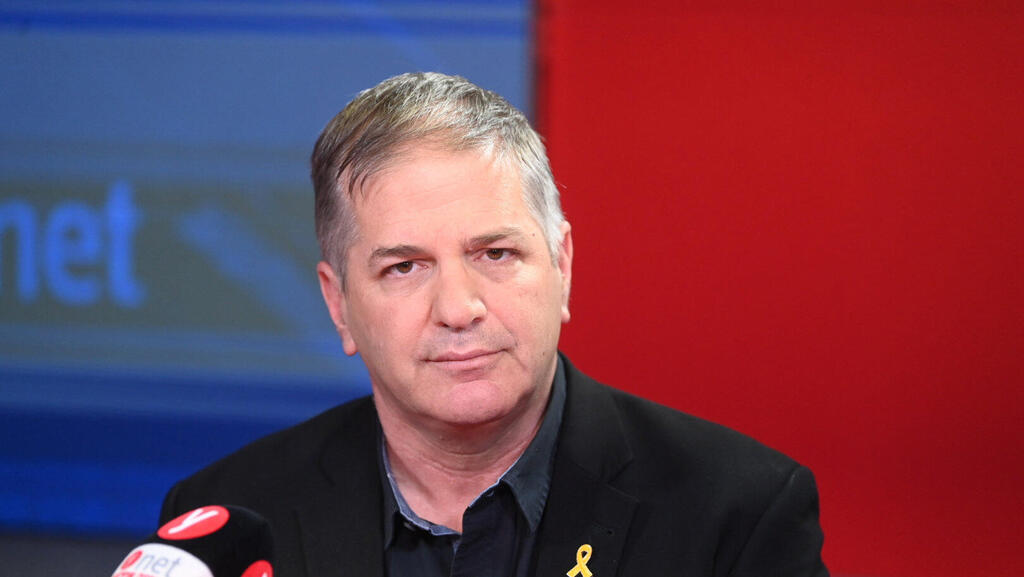
AI in every classroom? Inside Israel’s ambitious education overhaul
The Ministry of Education’s plan aims to prepare students for the future—but can it overcome old challenges?
Education Minister Yoav Kisch, flanked by senior ministry officials and representatives from leading high-tech companies and venture capital funds, announced the launch of the "Year of Artificial Intelligence (AI)" in the education system, along with a plan to introduce AI tools into Israeli schools. The announcement, befitting the launch of a strategic initiative, was celebratory. Speakers offered flowery praise for the groundbreaking program—described as the first of its kind in the world—aimed at making the wonders of artificial intelligence accessible to teachers and students. Yet, by the end of the event, the big question remained: Will the promises of a pedagogical revolution endure once the fanfare fades and routine sets in?
The AI revolution of recent years, led by generative artificial intelligence (GenAI) models, is set to disrupt and transform many industries, with education being one of the most prominent. Already, schoolteachers and university lecturers are grappling with the impact of chatbots like OpenAI’s ChatGPT and Google’s Gemini on traditional assignments such as homework and essay writing.
To its credit, the Ministry of Education recognized relatively early the importance of these tools and the need to integrate them into the education system in a formal, regulated manner—especially since students are already incorporating them into their daily learning processes. Over the past year, the ministry, in collaboration with high-tech companies, local authorities, and schools, has developed a comprehensive plan to integrate AI into the education system.
"This program is not about training AI engineers—that’s a separate issue," said Education Minister Yoav Kisch at a press conference held on Monday. "This initiative is about training hundreds of thousands of teachers and over a million students on how to use and learn about AI. It’s a huge challenge. We are working with students and teachers from ultra-Orthodox, Arab, and peripheral communities. I’m proud of this initiative. Israel is becoming one of the most advanced countries in the world in introducing AI into education."
The Ministry of Education’s program has two main focuses. The first is developing and making AI tools available for administrators, teachers, and students, along with online content that teaches and promotes their use. As part of this process, the ministry reviewed and selected around 30 existing services—including text-to-image, text-to-video, text-to-audio models, avatar creation tools, and more—intended for educational use.
A more significant step was the development of AI chatbots (based on Google’s Gemini) dedicated to the education system. The first, called QBot, is designed to guide students in using AI models. "This is the first chatbot in the world that teaches AI within an education system, based on educational standards," said Meirav Zerbib, head of the Science and Technology Department at the Ministry of Education. "It promotes basic digital literacy and operates in a secure environment through the Ministry’s unified identification system, allowing the bot to adapt to each student’s level."
After completing the QBot training process, students will gain access to a more general chatbot called Binah. This chatbot offers capabilities similar to other AI assistants but is tailored to adapt content and language to the student’s needs. It is also designed for teachers, helping them prepare lesson plans, write tests and assignments, and more. Accompanying these tools is a range of online resources—videos, games, and other teaching aids—designed to guide both teachers and students in understanding AI tools and their applications in the learning process.
The second pillar of the program focuses on human capital. Recognizing that providing tools is not enough, the ministry is prioritizing guidance and support to help educators maximize these resources. In February, approximately 3,500 mentors will begin working in schools across the country, training educational staff on how to integrate AI tools into their teaching practices. These mentors, who volunteer their time, include professionals from the high-tech industry, such as senior executives from companies like Microsoft. According to the Ministry of Education, every school that requested a mentor has been assigned one.
"The first challenge is simply to get educators to start using the basics—preparing presentations, creating animations, or designing tests," said Yorai Fainmesser, a partner at the venture capital fund Disruptive AI, who helped develop the program and serves as a mentor. "The next level is using AI to develop pedagogical tools. For example, personalized learning: one student loves soccer, another airplanes, a third horses. With AI, you can create stories, reading passages in English, videos, or audio content tailored to each student’s interests—something teachers couldn’t do before. That’s where mentors come in: to demonstrate how to translate AI capabilities into effective teaching strategies."
Each mentor will contribute up to 10 hours in February. After that, the responsibility for sustaining the program will shift to "change agents" within each school—staff members who will receive ongoing training from the Ministry of Education and lead the implementation of AI tools. "The real work happens through change agents and administrators who test the usability and effectiveness of these tools," Fainmesser said. "We’re just providing the initial spark."
"This is the first program of its kind globally, and the partnership with the private sector is unprecedented at the national level," said Dr. Tomer Simon, Chief Scientist at Microsoft Israel, during the press conference. "All youth and children are using AI, and the goal is to empower teachers to become catalysts for transforming the education system. Our studies show that with AI, teachers can regain one to two workdays per week and help close two-year learning gaps in just a few weeks."
Fainmesser also predicted that the integration of AI tools could revolutionize Israel’s education system. "AI allows us to break the mold," he told Calcalist. "I struggled in school because I was always bored and got in trouble for disrupting class. Now, we can break free from traditional frameworks—allowing top students to excel while providing targeted support to those who need it. This will make classroom time more precise, effective, and meaningful. There’s nothing like this happening anywhere else in the world, and it’s an incredible boost for the next generation."
The Ministry of Education’s plan sounds promising. But, unfortunately, we’ve seen bold initiatives in the past that started with great fanfare only to fizzle out in confusion, disintegration, and ultimately failure. The program is launching with strong backing from prominent tech companies, experienced mentors contributing tens of thousands of volunteer hours, and significant momentum.
The real question is what will happen after February when the mentors complete their roles. Ultimately, the success of the program will depend on school principals, the change agents trained by the Ministry, and the willingness of teachers—many of whom are older and may be resistant to change—to adopt and integrate these new tools. As time passes, will the Ministry of Education manage to sustain the program’s momentum? Will the tools be updated and improved to keep pace with technological advances?
We can hope so. But past experience suggests otherwise.















